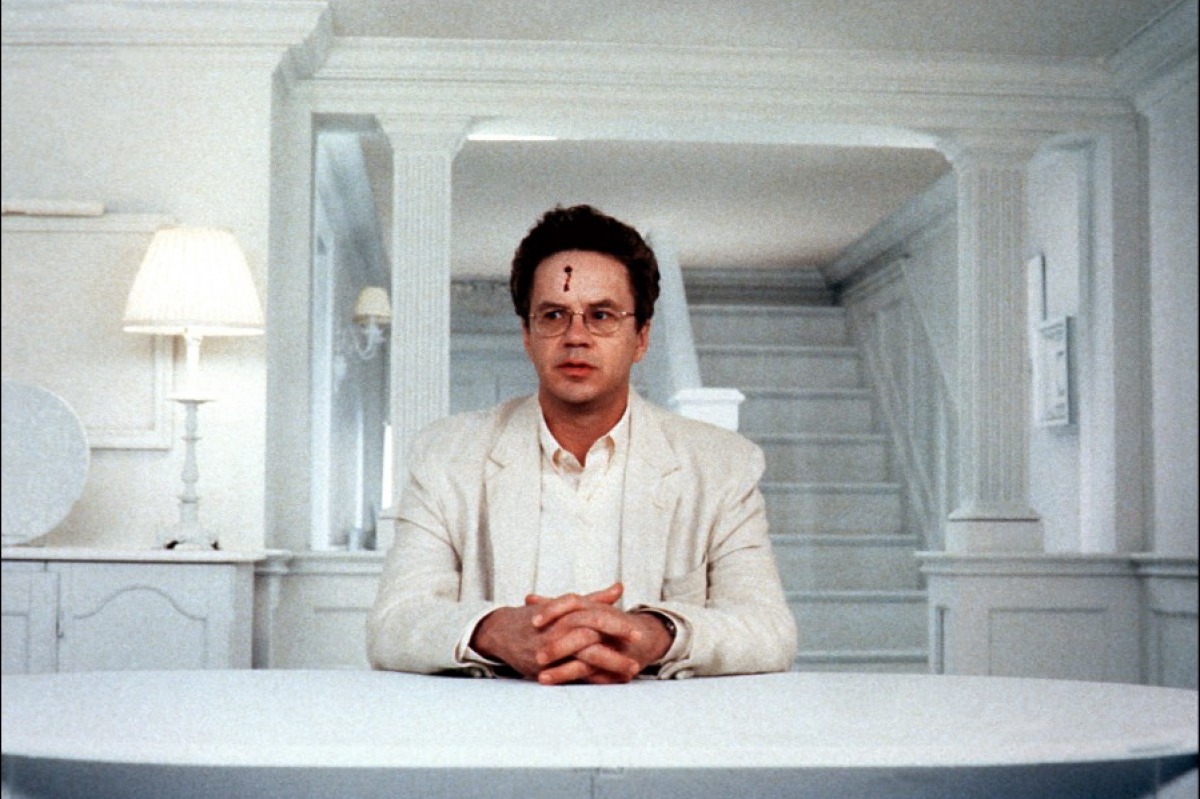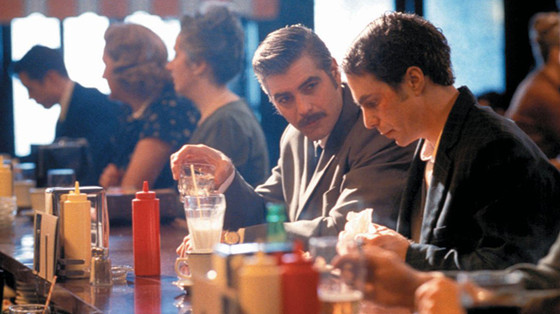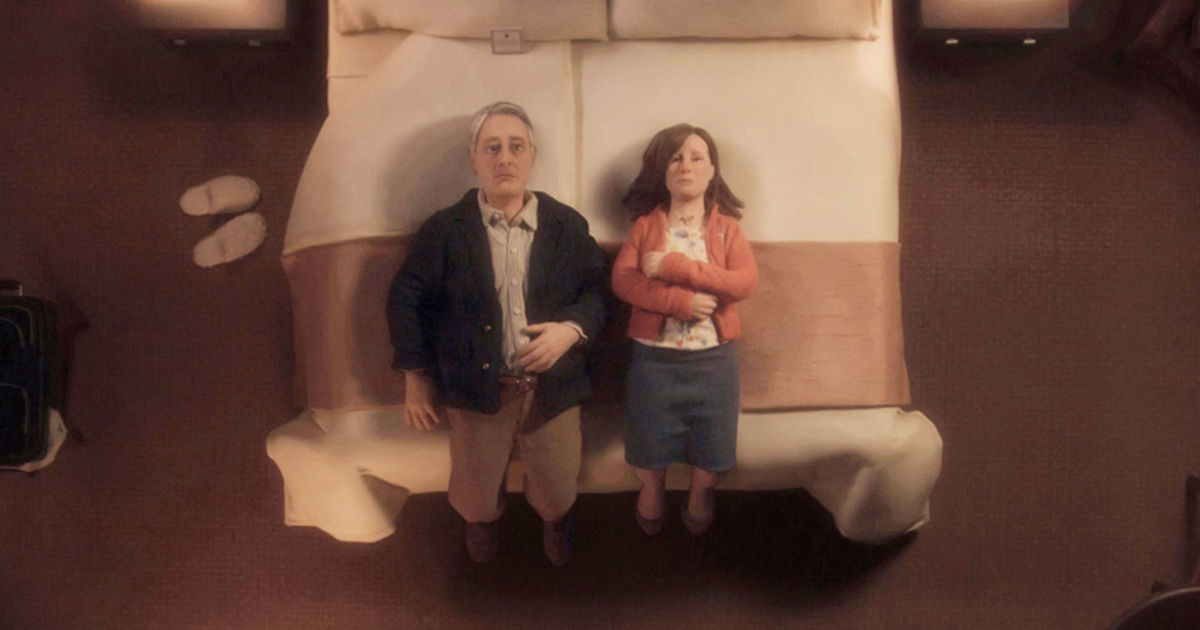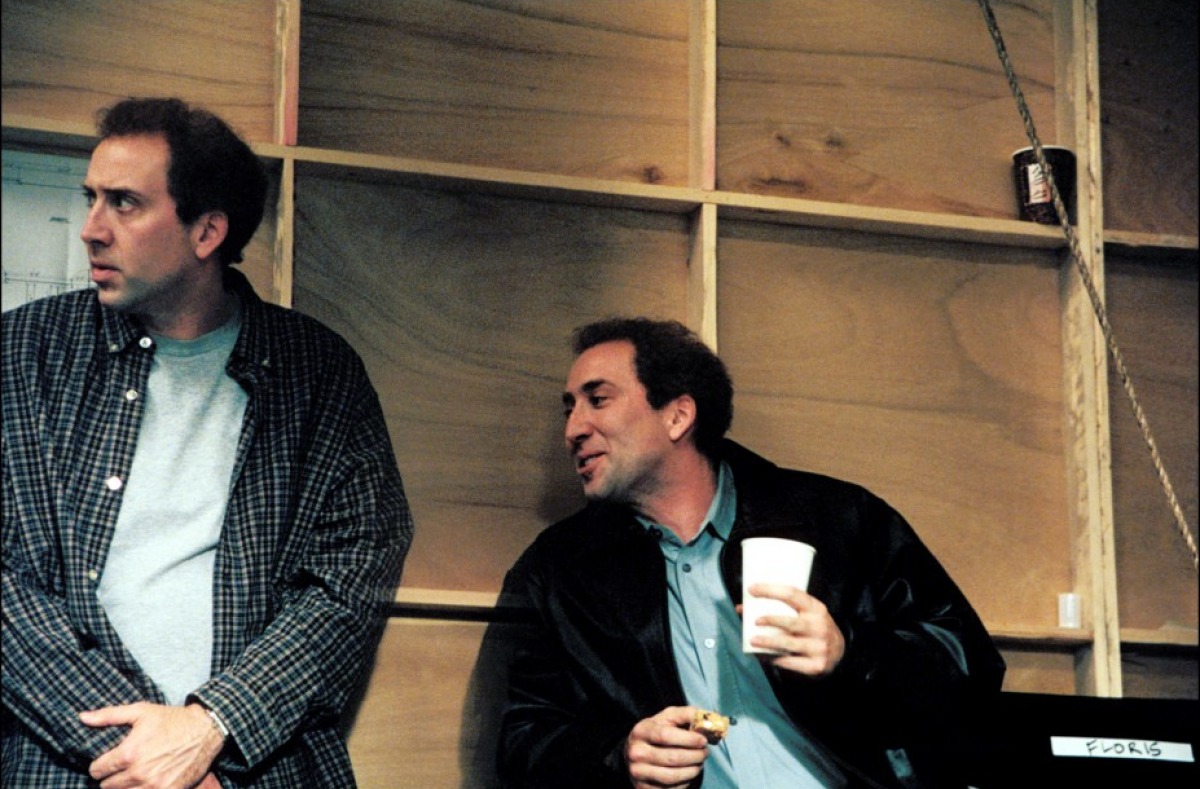
Charlie Kaufman is considered to be one of the most visionary filmmakers of our time. His ‘weird’ but poetic narratives have led him to create incredible and uniquely original films. His works explore philosophical themes such as identity crises, mortality, and the meaning or purpose of life, often in a metaphysic or parapsychological level.
Even though he is clearly inspired by Franz Kafka, Samuel Beckett, Philip K. Dick, David Lynch and many others, Kaufman could not easily be categorized as an artist but he could be characterized as a surrealist, and also a postmodern artist.
Having made only seven films emphasizes the fact that every film is a necessary ‘healing’ process for Kaufman. His scripts often include hesitant and passive protagonists who begin their ‘journey’ in a state of failure or self-doubt, exhausted from their life or job. In their attempt to be happy they become creative, but in a wrong way. They may lie, cheat or even try to kill whoever stands in their way. Here are, from worst to best, all the times Charlie Kaufman himself got creative, but in a very good way:
7. Human Nature (2001)

A film that includes a woman who is in love with a man who’s in love with another woman, where all three have designs on a young man raised as an ape, cannot be a serious film. Kaufman proves to anyone who thinks that wrong as he creates a film that also asks if there is a happy medium between natural impulses and the inhibitions of civilization. In other words, if it is true, as Nathan (Tim Robbins) instructs Puff (Rhys Ifans), then “when in doubt, don’t ever do what you really want to do.”
The movie has really nowhere to go and nothing much to prove, except that if you can devise the right characters and the right situation, the plot will take care of itself – or not, as the case may be. Ifans’ character is so dogged in the determination of his sex drive, despite the electrical shocks, that when the professor sets his final examination at a Hooters-type place, we’re grinning before he gets inside the door.
“Human Nature” was definitely an ambitious film, even from pre-production. Steven Soderbergh was first interested in directing Kaufman’s script back in late 1996, when Kaufman was still trying to get “Being John Malkovich” produced. He was about to go into pre-production when he was offered “Out of Sight” and after much deliberation, he left the project.
Michel Gondry did an interesting job in his mixed reviewed directorial debut, but not one as great as Kaufman’s more philosophical film projects in the future.
6. Confessions of a Dangerous Mind (2002)

Once again, Kaufman trusted one of his scripts to an at-the-time debut director, George Clooney. The fact that this would be the first project to attract Clooney as a director is not surprising if we consider that his father directed game shows, and he was often a backstage observer.
Clooney directed it so well and made it a part of that re-education by which everyone stopped thinking of him just as a TV hunk and realized that he is smart and curious. Of course, Kaufman’s script made it a lot easier with its not only intriguing but potentially great-to-look-at story.
“Confessions of a Dangerous Mind” is a marriage of bright pop images from the 1960s and 70s and dark, cold skyscrapers that seem to have wandered in from John Le Carré. However, the film is based on a true story, and it doesn’t really matter whether the story is true, because Kaufman uses what he wants to make another screenwriting nudge, as he did the same year with “Adaptation.”
After all, every autobiography is fictional, made up out of that continuous subconscious rewriting process by which we make ourselves blameless and heroic. At least that what Kaufman claims.
There may be more entertaining and less problematic movies, but “Confessions of a Dangerous Mind” has something about it that hangs in there. The movie makes a case for itself through sheer oddness and perversity as almost every Kaufman movie does, and it asks a pretty interesting question: “Is guilt an act of heroism?”
5. Anomalisa (2015)

“Anomalisa” is the first (and we hope not the last) stop-motion picture from Kaufman and is one great example of his commonly used “flickering effect”. As Brian McHale claims in “Postmodernist Fiction”, the “flickering effect” is an element of postmodern narratives in which zones of conscience react.
To simplify this theory, he divides these zones into two: that of the familiar and that of the unfamiliar. The narrative may introduce the audience to the unfamiliar zone, but after awhile it imports the familiar zone as well, which includes the common perception of life as we know it.
This constant interchange between the two zones decomposes the familiar element and as a result, the narrative provokes doubts about the absolutism of its reality and creates ontological questions to the viewer or reader. The inevitable inability of the audience to separate the two zones is what we call the “flickering effect”.
In a same way, in “Anomalisa”, Kaufman seems like he’s taking our brains apart and showing us the gears. For all its visual audacity and honest feelings, it is a modest, even slight work, aesthetically sealed off from the same reality in which it engages.
It ends a bit abruptly, just when it seemed to be ramping up toward a more definitive statement of some kind, and the general outlines of Michael Stone’s (David Thewlis) story aren’t new. But there’s so much beauty and sadness in it, and so many exquisitely conceived scenes that it would be miserly to underrate it.
The film was a critical and box office success, nominated for an Oscar for Best Animated Feature (the first ever R-rated movie in this category), and is definitely the most shattering experiment yet from Charlie Kaufman.
4. Adaptation (2002)

This film is another game between the interchange of subjectivity and objectivity that Kaufman loves to do so much. The meta-narrative is a basic element of postmodern art as it tries to delete the borders between reality and fiction, doubting in this way the ontological status of the world in which we live.
Reality is not objective and it depends on the perspective of each exposed subject. Roland Barthes avouches: “Denying the absolutism of the so-called circumscriptions is like denying God and what He represents logic, science, laws.” In this way, in meta fiction of postmodernism there is a possibility of the narrative itself to be critical against every other narrative which claims to provide the Truth.
“Adaptation” is a critic to modern narratives, and its constant entanglement of true and fictional events makes it one of the most interesting films ever made. The effect of Kaufman is so powerful that it even entangled real life (!) and fiction. In the movie’s universe, there is Donald Kaufman, the twin brother of Charlie who’s also a screenwriter. In real life he was credited as a co-writer of “Adaptation” and was also nominated for an Oscar… but there was never a real Donald Kaufman!